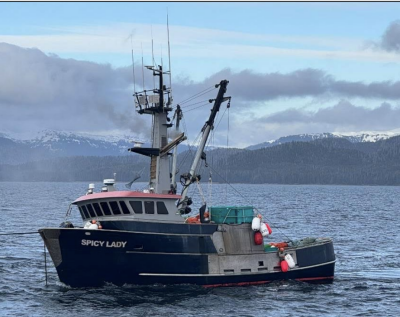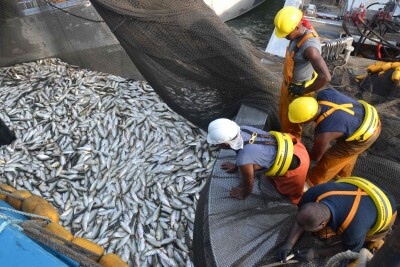'Evidently leaking some oil'
So there you have it. Nearly 20 years — and 6,000 fewer plaintiffs — after Capt. Joseph Hazelwood broadcast those words from his perch high above Bligh Reef in Prince William Sound, the ultimate verdict in the Exxon Valdez case is in, proving once again, as Merle Haggard has been telling us lo these many years, that a working man can't get nowhere today.
This hasn't been a legal case so much as a series of insults, the first of which was Exxon's willingness to entrust the movement of 53 million gallons of oil through the wilderness of Prince William Sound to a serial abuser of alcohol.
Then there was what the U.S. Environmental Protection Agency described as a "wholly insufficient" response to the spill, by both Exxon and government, marked by "unreasonably slow" efforts to get containment equipment on the scene — equipment that turned out to be inadequate for the job at hand.
How about Exxon's dubious assertion to Alaskans gathered in a Cordova gymnasium (chronicled by R.J. Kopchak, who was there, on p. 4) that this was their lucky day because they had Exxon on their side?
Are you feeling insulted yet?
NOAA and researchers elsewhere have concluded that as many as 26,000 gallons of oil remain embedded in the shoreline and in area rivers and streams. "We expected the natural decay rate was 25 percent a year," Jeffrey Short, a NOAA research chemist, told USA Today last year. "But very little of the oil actually disappeared. What's left is going to be there a long time."
Exxon's take: "It is clear that there have been no effects on the environment that remain ecologically significant," a company spokesman told USA Today, for the same article.
Nothing could make this disaster worthwhile. There is no lesson learned that will someday allow us to say, "Some good came out of this." But for a while — too long a while — there was hope that folks who had been totally uprooted by the spill, or who went bankrupt, or whose lives were placed on hold over the years of litigation, might receive something in the order of just compensation.
That will not be the case. And, as if an award of $507 million in punitive damages is not miserly and insufficient in its own right, we now know that Exxon, thanks to a deal it cut with fish processors to whom it fronted $70 million, will be the largest beneficiary, collecting $110 million of its own money.
The insults, of course, are ongoing: Exxon, as of this writing, is maneuvering to avoid paying interest on the judgment, which would add approximately $488 million to the award.
Exxon Mobil is the world's largest company by revenue, which last year exceeded $400 billion. Two years ago, outgoing CEO Lee Raymond was given a $400 million severance package to mark his retirement. In a "Today" show interview this spring, Rex Tillerson, who took over from Raymond, defended the company's profits, which last year exceeded $40 billion, by suggesting that oil is a business of big numbers.
They are certainly numbers beyond the comprehension of those of us who struggle to put fuel in our cars, trucks and boats, a gallon at a time, and who are wondering whether it makes sense to lock into $4.89-a-gallon home heating oil.
Most of us do not know the world of oak-paneled corporate boardrooms, dividend checks, the spot market for crude and seven-figure retirement packages.
We know fish houses and low prices and bad weights and wonder how we'll get by on Social Security.
We've heard of white-shoe law firms where partners collect six-figure bonuses — or more — but the lawyers with whom we're familiar handle divorces and drunk driving cases.
And we do know a little about the Supreme Court; they taught us about Brown vs. the Board of Education in school and told us we could take to heart the four words carved into the front of the high court: "equal justice under law."
But we've been around long enough to know that some folks are more equal than others, just like some folks are more accountable than others.
If you don't think so, try not paying Exxon Mobil the interest on its gasoline credit card the next time you can't pay the entire balance.
Sing it, Merle:
"I owe every dime I make
to every soul I know,
The higher up I reach
the farther down I go,
And this old broken back
of mine is all I got to show,
And anyway, a working man can't get nowhere today."






